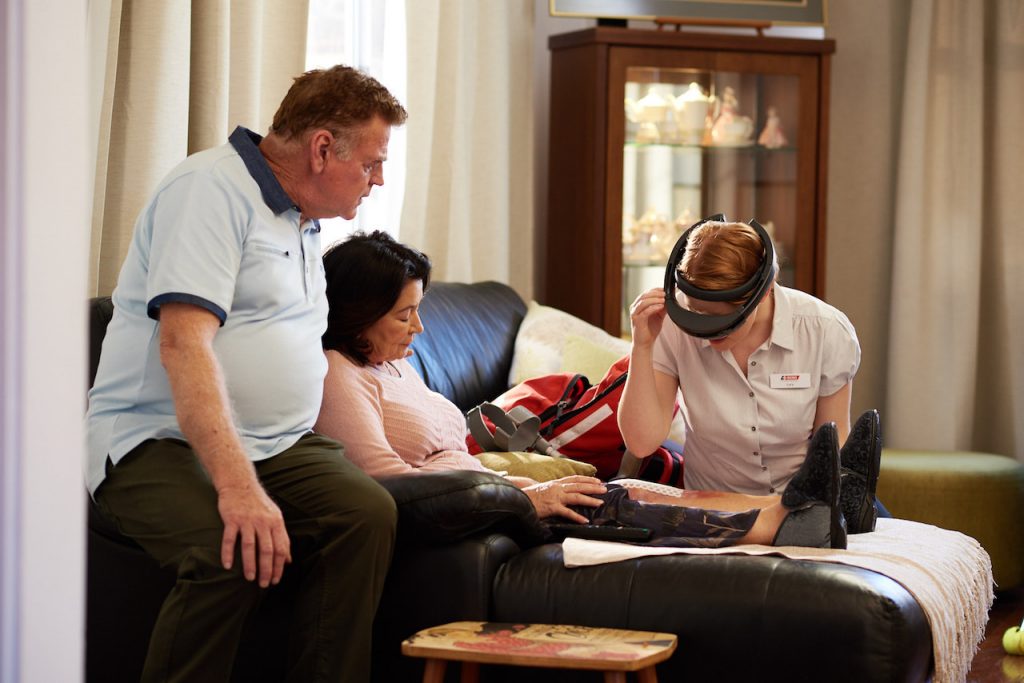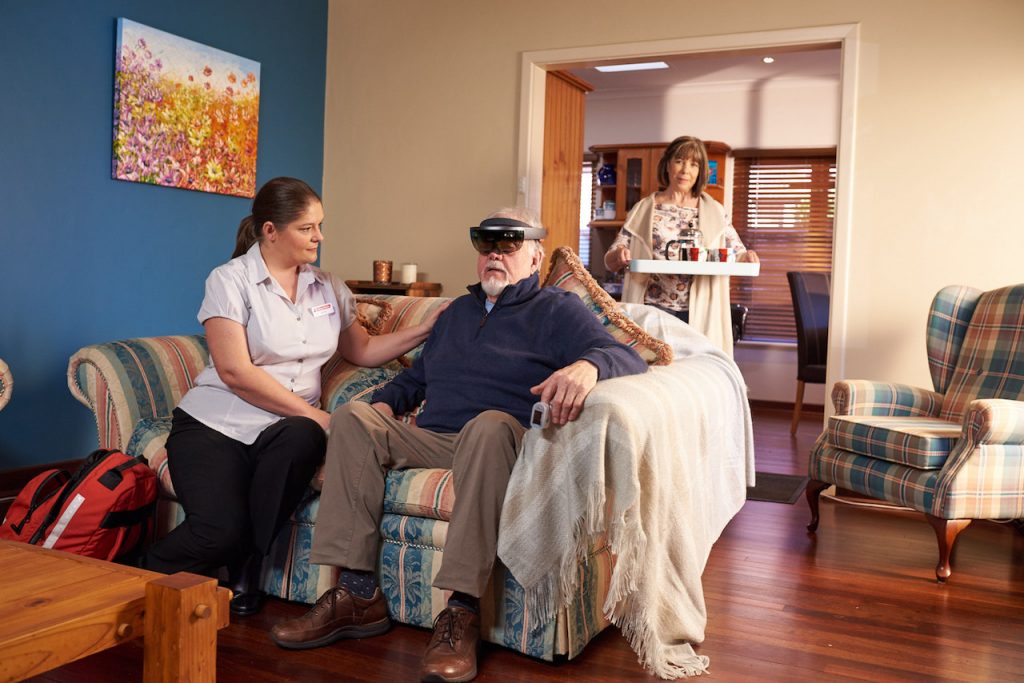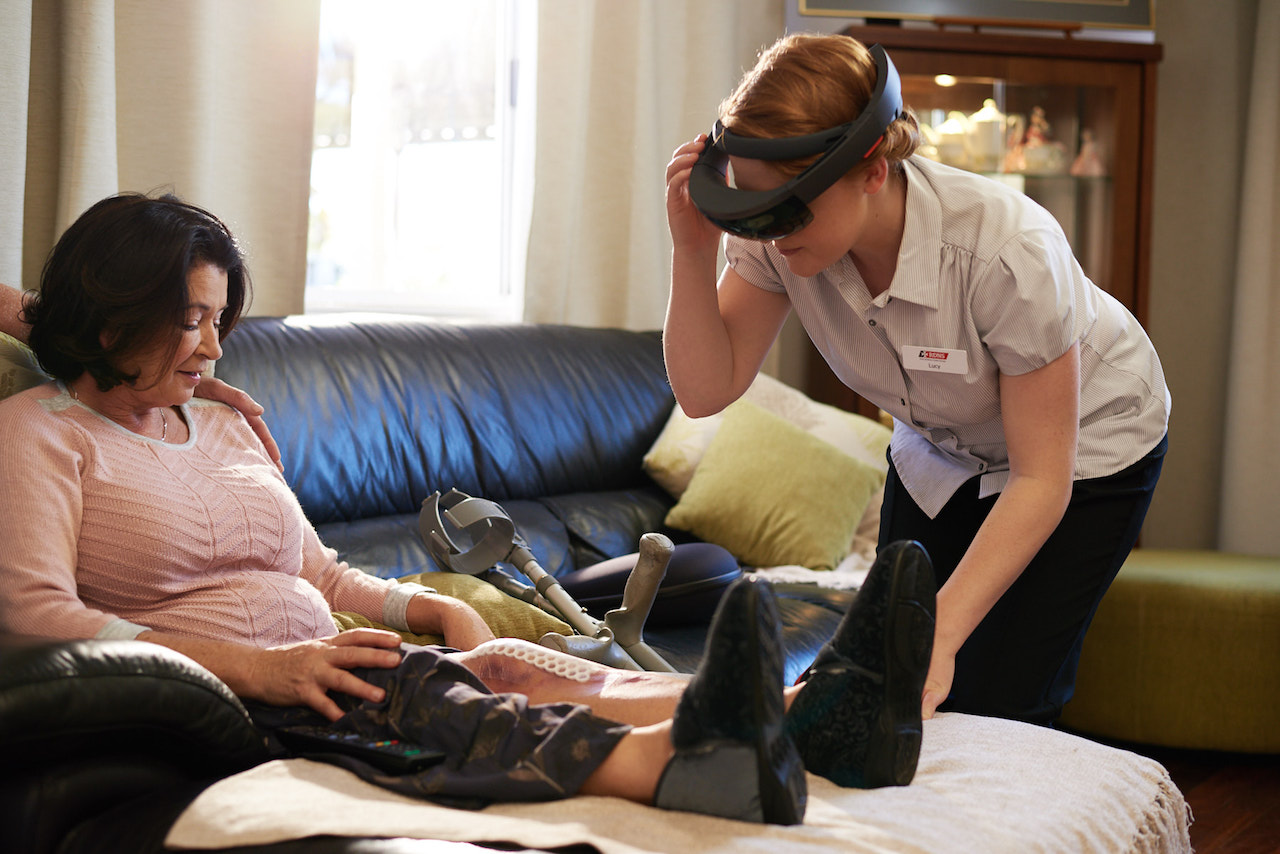AUGMENTED reality will enable a doctor to see through the eyes of a nurse visiting a patient at home, providing all the operability of a hospital or consulting room without leaving their office.
Silver Chain unveiled the new mixed reality application Enhanced Medical Mixed Reality, or EMMR, to technology and business experts from across the world at Microsoft’s Envision conference in Florida last month.
Silver Chain Group chief executive officer, Dr Christopher McGowan said the system was designed to enable people who would otherwise be in hospital to receive equivalent care at home.
“It is designed for very elderly patients with complex medical issues with the aim of providing them with more comprehensive primary care,” he said.
Home is the least costly setting for long-term health care and the preferred option of most patients and their families.
Dr McGowan said when Microsoft released the HoloLens augmented reality headset, it presented Silver Chain with new possibilities to use ‘holoportation’ to deliver face to face clinical consulting from a remote situation.
Mixed reality is about merging the real and virtual worlds to produce new environments and information visualisations where objects co-exist and interact in real time.
A Silver Chain nurse visiting a client will use the Microsoft HoloLens to gain hands free access to clients’ clinical data through a holographic dashboard. At the same time a doctor will be able to effectively see through the eyes of the nurse to examine the patient.
 A holograph is a three dimensional image which appears to a person wearing a mixed reality headset.
A holograph is a three dimensional image which appears to a person wearing a mixed reality headset.
EMMR helps clients by removing the need for travel to and from appointments, and giving them access to face-to-face consultations with their doctor via ‘holoportation’.
“This new application will give clients greater confidence to live at home, with the knowledge that clinical staff can access specialists using Microsoft HoloLens, as well as the ability to share consultations with family members anywhere in the world, in real time.” Dr McGowan said.
“EMMR will enhance the delivery of our services, further supporting our clients to remain at home, rather than be transferred to a hospital,” Dr McGowan said.
“They can have their consultations in the home. They won’t have to travel for appointments and clinical specialists can remain in central locations while still providing personalised care and saving the health care system time and money.
“Our research indicates around 30 per cent of people don’t need to be in hospital and could be receiving the same safe, quality treatment at home where they feel more comfortable with the added benefit of freeing hospital beds for critically unwell patients.”
It will also be easier to prevent opportunist infections, such as Legionaire’s disease developing in the home rather than an institutional environment
DR McGowan told Have a Go News that the system had been tested for acceptability by a small group of people in their 80s and 90s.
“They were all comfortable with the technology,” he said.
“The software is performing well. Only minor problems are still to be ironed out. We aim to trial it across a variety of locations and settings in March this year before it is rolled out to Silver Chain clients on a larger scale in all states,” he said.
































